Are you ready to kickstart your career in the dynamic world of media and communications? Crafting the perfect internship application letter can set you apart from the competition and showcase your unique skills and passion for the field. With just the right tone and structure, you can convey your enthusiasm and qualifications to potential employers. Want to learn how to write an impactful letter that grabs attention? Keep reading to discover essential tips and templates!
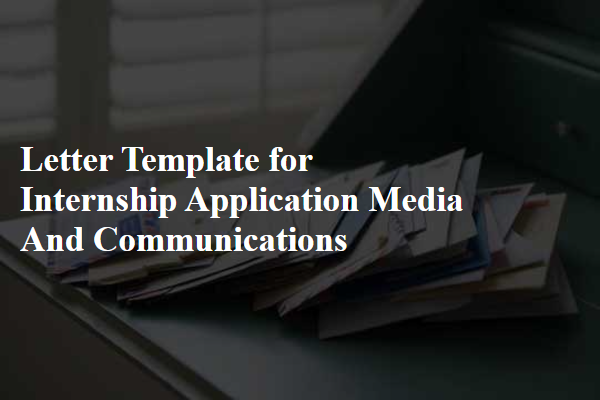
Professional formatting and structure
An impactful internship application in the media and communications field conveys the candidate's enthusiasm, relevant skills, and experiences. This document encompasses a structured format featuring the applicant's name and contact information at the top, followed by the date and the employer's details. A respectful greeting precedes the main content, which articulates the applicant's motivations for pursuing the internship at a specific organization, outlining their educational background, related coursework, and impactful projects or experiences that demonstrate competency in media tools, communication strategies, or digital marketing. The applicant's understanding of the organization's mission and how their skills can contribute is essential. Furthermore, concluding with a call to action encourages the reader to consider the applicant for an interview while expressing gratitude for the opportunity. A professional closing ends the letter with a signature, maintaining a polished tone throughout.
Concise and specific subject line
Subject Line: Internship Application - Media and Communications Position Note: The subject line clearly defines the purpose of the email, ensuring the recipient understands its content quickly.
Personalized greeting and introduction
A well-crafted internship application in media and communications should start with a personalized greeting, including the recipient's name, such as "Dear Ms. Smith," followed by a concise introduction that highlights your enthusiasm for the position. Clearly state your current academic status, such as "a junior at XYZ University majoring in Media Studies." Mention specific interests related to the internship, such as digital marketing strategies or multimedia storytelling, to establish relevance. Provide a brief overview of relevant skills, like proficiency in Adobe Creative Suite or experience in social media management, connecting them to the expectations of the internship role.
Highlight relevant skills and experiences
An internship in media and communications offers exposure to vital skills and experiences essential for professional growth in this dynamic field. Proficiency in social media management, particularly platforms like Instagram and Twitter, is crucial for creating engaging content (over 60% of consumers prefer personalized posts). Experience with writing compelling press releases can enhance communication strategies, with effective releases potentially reaching thousands of media outlets. Familiarity with video editing software, such as Adobe Premiere Pro, can effectively contribute to visual storytelling, a key element in digital marketing campaigns that capture audience attention (videos generate 1200% more shares than text and images combined). Participation in university-led PR campaigns provides practical experience in coordinating events and managing brand representation, essential skills for thriving in competitive environments like New York City or Los Angeles, where the media landscape is constantly evolving. Networking with professionals at industry events (such as the annual PRSA International Conference) can further sharpen one's understanding of current trends and enhance career prospects.
Strong closing with a call to action
Creating engaging media content is a strategic way to connect with audiences and deliver impactful messages. For instance, during a major event like the Olympic Games, media channels deploy various forms of communication to enhance viewer engagement, utilizing platforms such as social media, live broadcasts, and digital storytelling. Companies, especially within the media and communications sector, increasingly rely on analytics to measure audience reach and engagement metrics, ensuring content resonates effectively. The evolution of technology has also introduced advancements like augmented reality (AR) in campaigns, captivating audiences with immersive experiences. A strong call to action can significantly drive audience interaction, encouraging them to not just consume content but participate actively, whether through sharing experiences or providing feedback.
Letter Template For Internship Application Media And Communications Samples
Letter template of Internship Application for Media and Communications Position
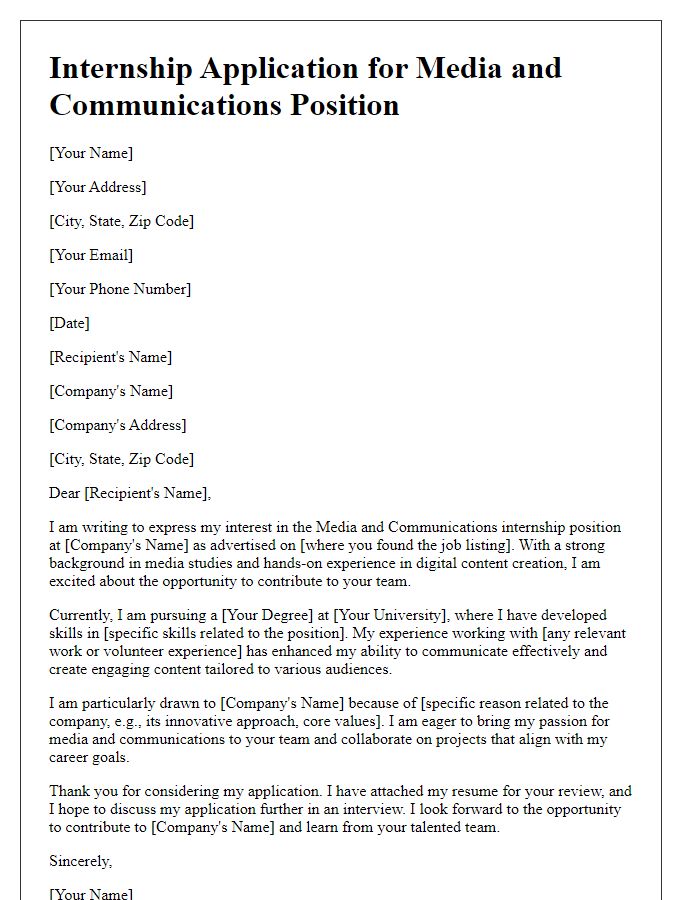
Letter template of Application for Media and Communications Internship Opportunity
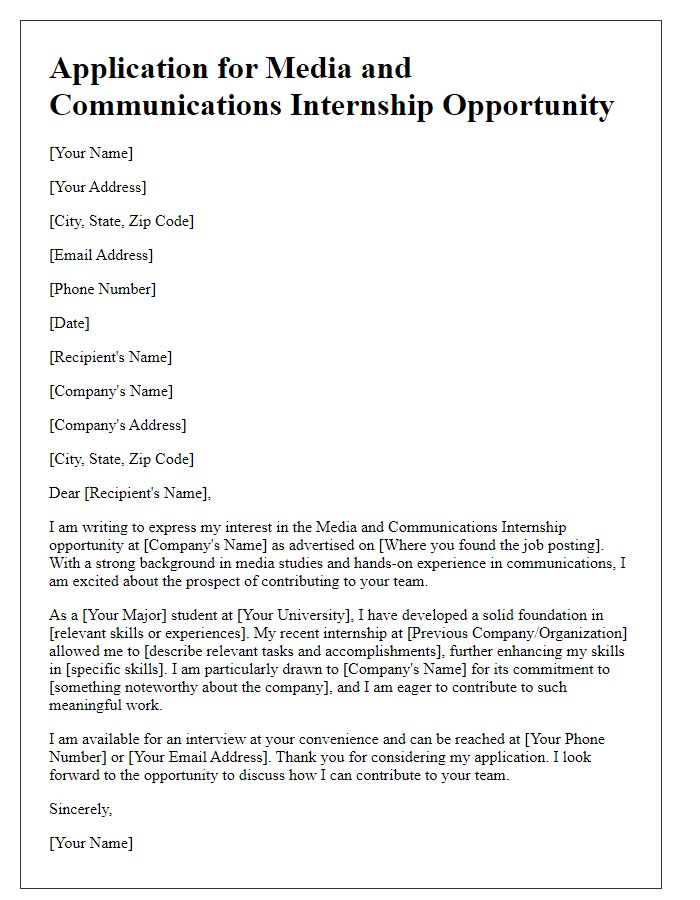
Letter template of Application for Internship in Media and Communications Field
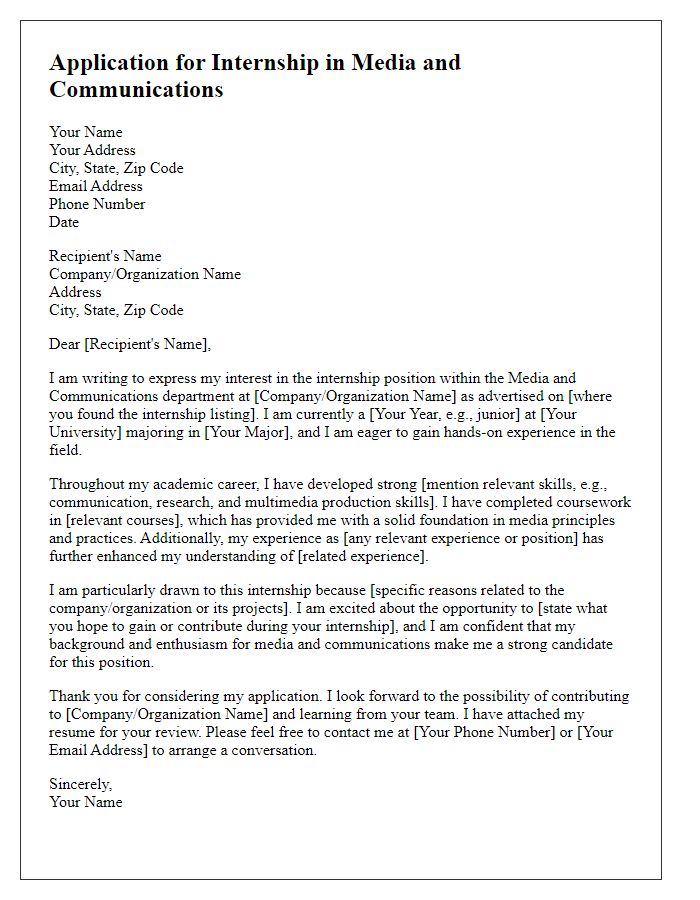
Letter template of Internship Application Letter for Media and Communications
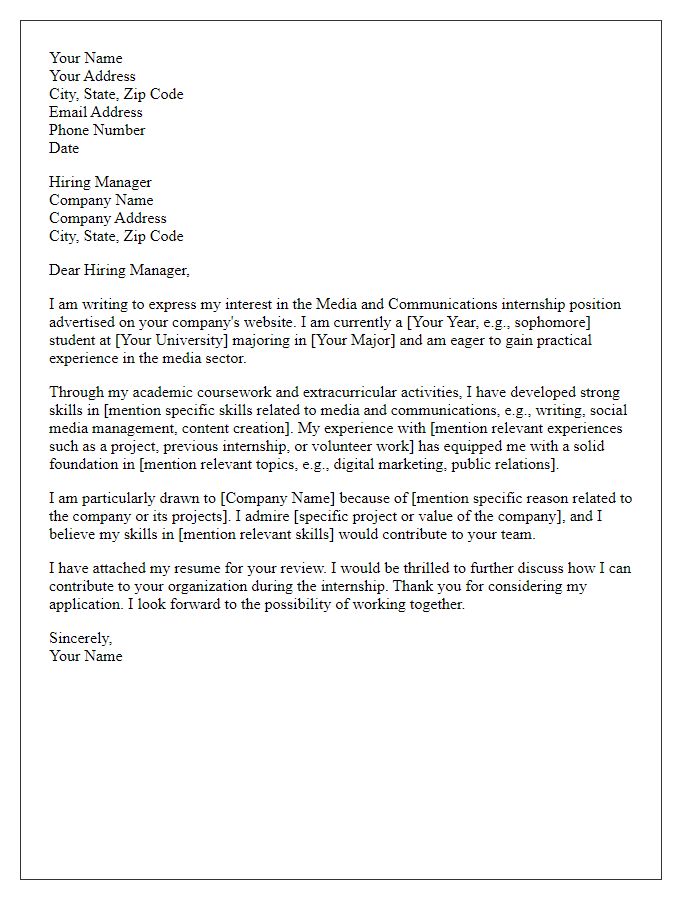
Letter template of Request for Media and Communications Internship Position
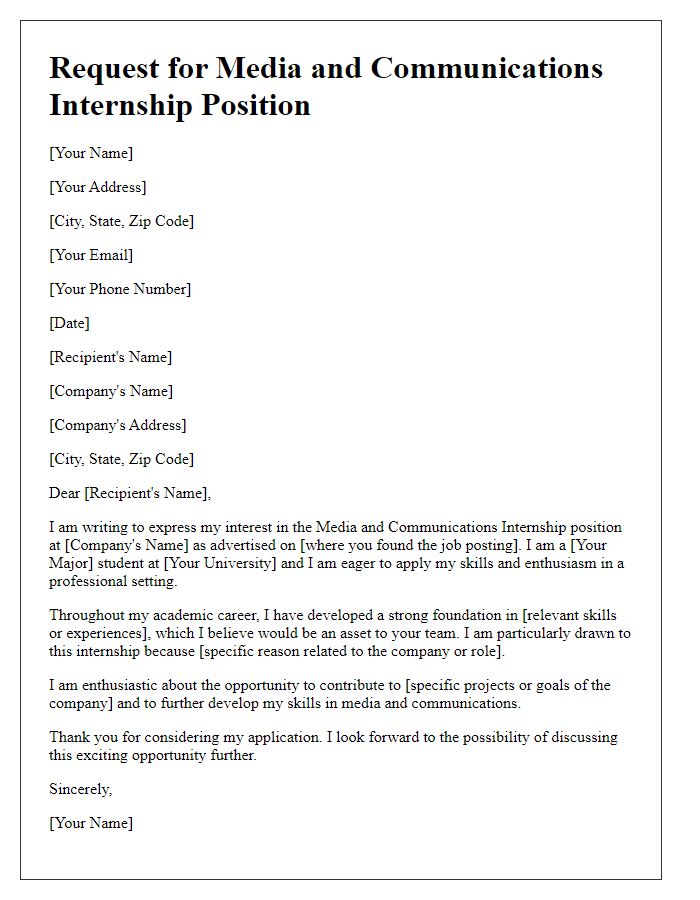

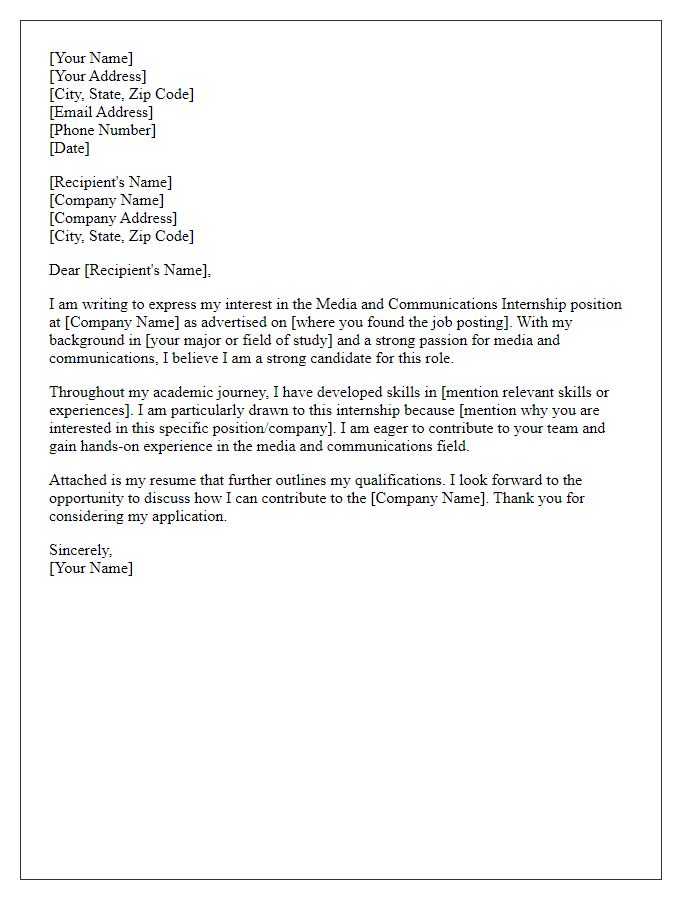
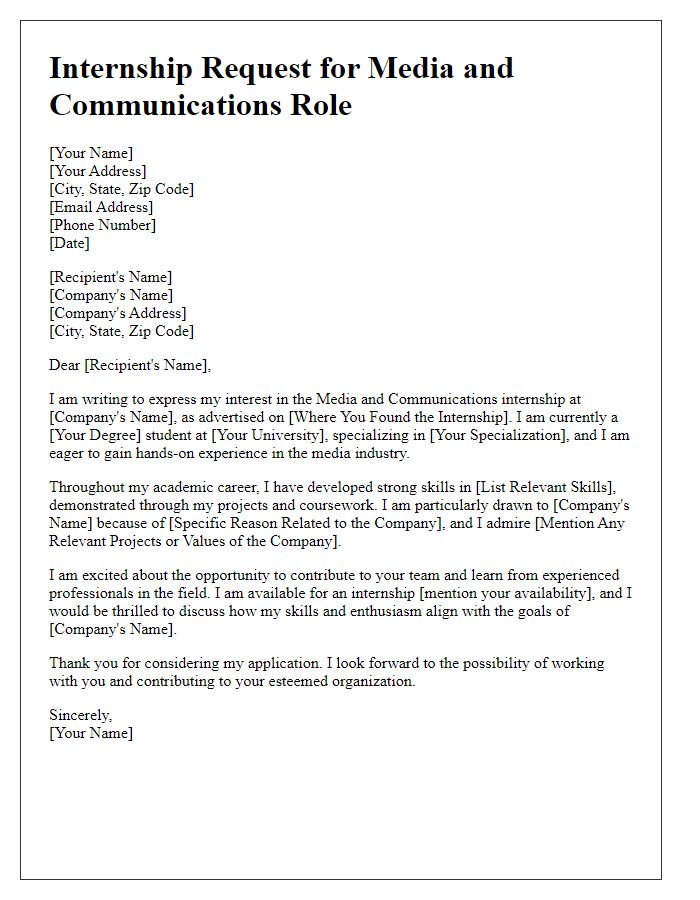
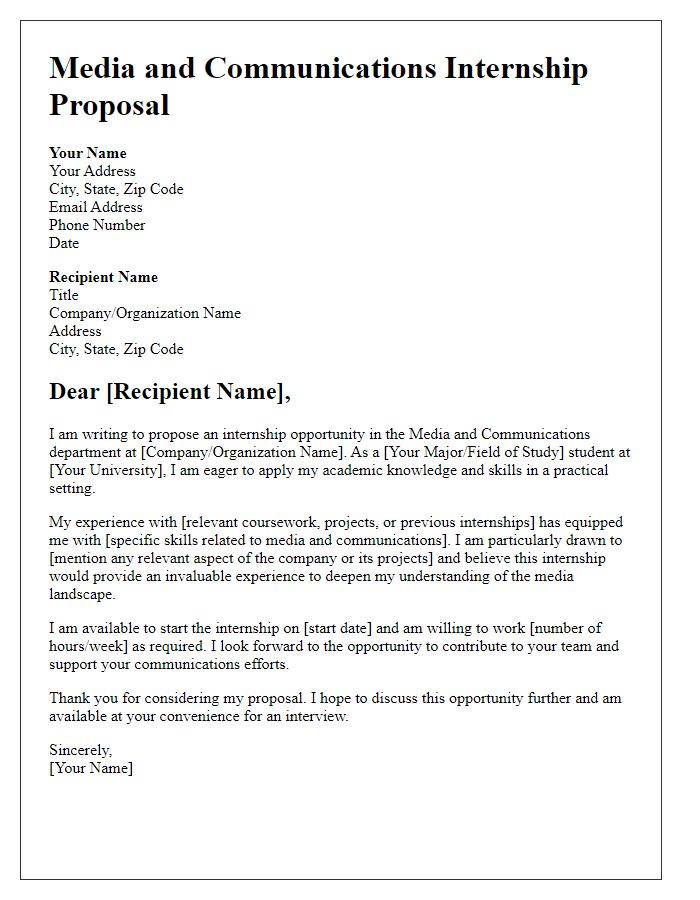
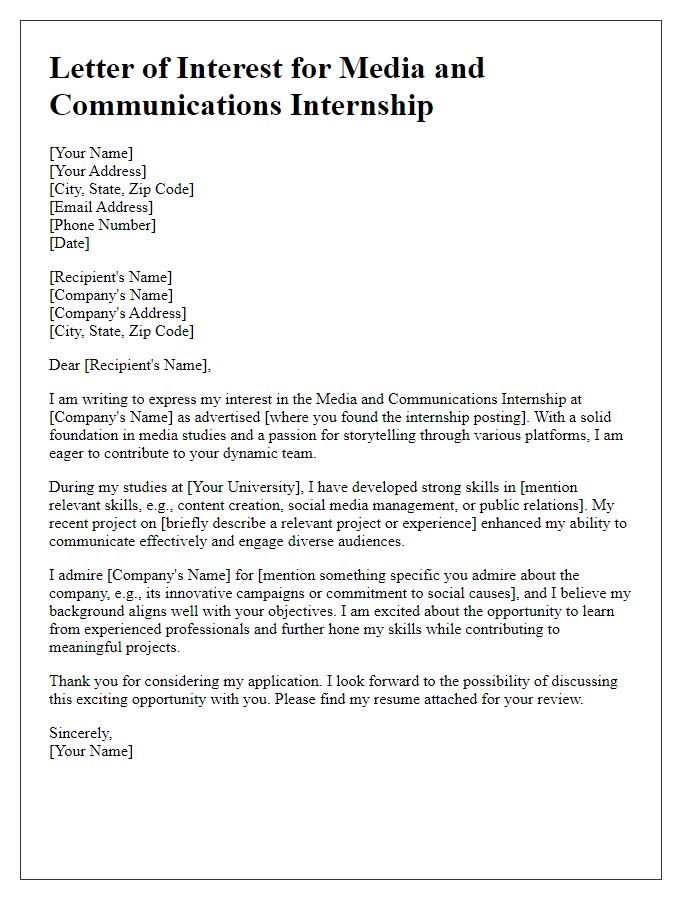
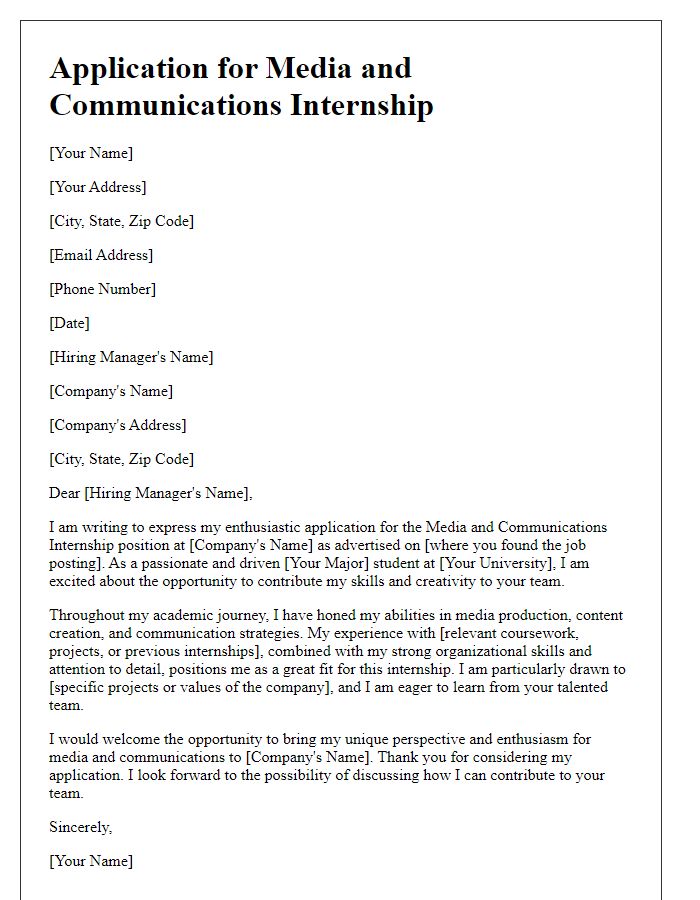


Comments